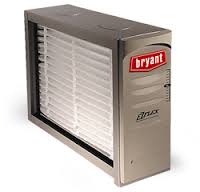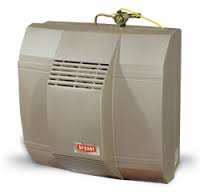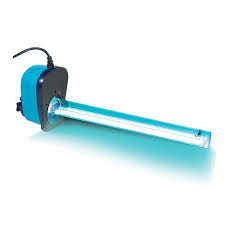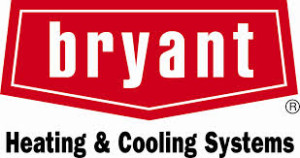Why is Indoor Air Quality Important?
The Environmental Protection Agency lists Indoor Air Quality among the top 5 risks to human health, probably because indoor air can be 2-5 times more polluted than outdoor air. While homeowners can’t see the majority of indoor air contaminants, every cubic foot of air breathed carries a mixture of millions of microscopic particles such as pollen, mold spores and dust mite debris. In small concentrations, these particles and gasses may cause discomfort in the home. In significant concentrations, they can cause sickness as these are among the most troublesome triggers of such ailments as asthma and allergies.
 1) Filter or neutralize particulates found in indoor air. Air cleaners installed just ahead of the heating and cooling equipment remove a portion of airborne pollutants each time air is pulled into the return air ducts.
1) Filter or neutralize particulates found in indoor air. Air cleaners installed just ahead of the heating and cooling equipment remove a portion of airborne pollutants each time air is pulled into the return air ducts.
 2)Proper humidification levels are equally important in both hot and cold environments. This is needed to control relative humidity levels in the home, minimizing unhealthy airborne pollutants. Too little humidity leaves the body vulnerable to infections, and can cause damage to the home’s wood furnishings. Inversely, too much humidity creates ideal breeding grounds for mold, mildew, and dust mites.
2)Proper humidification levels are equally important in both hot and cold environments. This is needed to control relative humidity levels in the home, minimizing unhealthy airborne pollutants. Too little humidity leaves the body vulnerable to infections, and can cause damage to the home’s wood furnishings. Inversely, too much humidity creates ideal breeding grounds for mold, mildew, and dust mites.
 3)Eliminate air pollutants before they enter the home. For example, by not allowing people to smoke or have pets in the home, homeowners practice source control. Such examples are not always practical. Installing Ultra-Violet Treatment Systems help stop the problem before they start. By sterilizing pathogens with UV Treatment Systems, homeowners deter such harmful contaminants as mold, mildew, bacteria and viruses from forming.
3)Eliminate air pollutants before they enter the home. For example, by not allowing people to smoke or have pets in the home, homeowners practice source control. Such examples are not always practical. Installing Ultra-Violet Treatment Systems help stop the problem before they start. By sterilizing pathogens with UV Treatment Systems, homeowners deter such harmful contaminants as mold, mildew, bacteria and viruses from forming.

4)Replace a portion of the indoor air with fresh outdoor air. This process occurs naturally in all homes, but at different rates depending on the structure’s tightness. Opening windows is one way to increase the pace of air exchange, although it’s an energy-wasting solution. Energy-efficient ERV and HRV ventilation systems exchange indoor air for outdoor air while recovering most of the energy used to heat or cool the air being exhausted. Controlling fresh air entering the home allows it to be conditioned by an efficient air cleaner, dehumidifier and UV Treatment system prior to passing through the home’s furnace or air conditioner.
Indoor Air Quality – Make Yours a Healthy Home Why is Indoor Air Quality Important? The Environmental Protection Agency lists Indoor Air Quality among
Source: Indoor Air Quality, 10 WAYS IAQ


